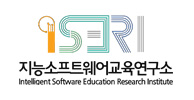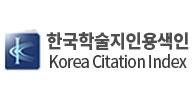목적 및 범위 Aim and Scope more
As a research center for artificial intelligence education in Korea, Jeju National University's Institute of Intelligent Software Education is committed to building an educational foundation for fostering artificial intelligence (AI) convergence talents in the intelligent information society.The institute is building a foundation for AI education to cultivate computational thinking skills as a digital competency required in the intelligent information society, researching AI education for computer non-majors and majors at the lifelong education level from infants to middle-aged adults, researching AI education for the information-deprived class to bridge the digital divide, along with AI ethics research that emphasizes the positive functions of AI and minimizes its negative functions, researching AI convergence technology to solve creative and new problems by looking at trends in the field of AI.In order to systematically study the major research areas listed above and to specifically realize the purpose of the institute, we are publishing a journal under the theme of 「Intelligent Information Convergence and Future Education」.We aim to publish research that seeks to pursue more effective problem-solving methods by integrating intelligent information technology centered on computer science and intelligent information in various fields, and research on information·computer education and convergence education for future education, including artificial intelligence, to foster future human resources to lead the intelligent information society, and we aim to improve the quality of educational research.We look forward to receiving submissions from all researchers in related fields..우리나라 인공지능교육의 연구거점, 제주대학교 지능소프트웨어교육연구소는 지능정보사회의 인공지능(AI) 융합 인재 양성을 위한 교육 기반 구축에 힘을 쏟고 있습니다.본 연구소는 지능정보사회에서 갖춰야 할 디지털 소양으로써의 컴퓨팅 사고력을 함양하기 위한 인공지능교육 기반 구축, 유아부터 중장년층까지 평생교육 차원의 컴퓨터 비전공자 및 전공자를 위한 인공지능교육에 대한 연구, 디지털 격차 해소를 위한 정보배려계층 대상 인공지능교육 연구, 지능정보기술의 순기능을 강조함과 동시에 역기능을 최소화할 수 있는 인공지능윤리 연구 등과 함께, 인공지능 분야의 동향을 살펴 창의적이고 새로운 문제해결을 위해 인공지능 융합 기술을 연구하고 있습니다.이에 본 연구소는 앞서 제시한 주요 연구 분야를 체계적으로 연구함과 동시에 연구소의 목적을 구체적으로 실현하고자 「지능정보융합과 미래교육」을 주제로 학술지를 발간합니다.컴퓨터과학을 중심으로 하는 지능정보기술과 다양한 분야에 지능정보를 융합하여보다 효과적인 문제해결 방법을 추구하고자 하는 연구, 지능정보사회를 이끌어갈 미래 인재양성을 위해 인공지능을 포함한 정보·컴퓨터교육과 미래교육을 위한 융·복합 교육 관련 연구를 게재하고 교육 연구의 질적인 향상을 이루고자 합니다.관련 분야에 계신 모든 연구자 분들의 많은 투고를 부탁드립니다.
KCI 후보
2024년 1월 등재후보학술지 선정








